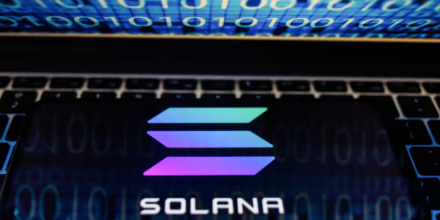Nasdaq Expands IBIT Bitcoin ETF Options Limits, Boosting Market Liquidity and Institutional Access
Quick breakdown:
- Nasdaq International Securities Exchange has proposed increasing the position limits for options on BlackRock’s iShares Bitcoin Trust (IBIT) ETF from 250,000 to 1 million contracts.
- This move responds to growing demand, enabling larger trades and more effective hedging strategies.
- Experts anticipate this will improve market liquidity, tighten spreads, and elevate IBIT to the status of an institutional-grade asset class alongside tech giants like Apple and Microsoft.
Nasdaq seeks to Super-Size IBIT Bitcoin ETF options
The Nasdaq International Securities Exchange recently filed a proposal with the U.S. Securities and Exchange Commission (SEC) to raise the position limits for options on BlackRock’s iShares Bitcoin Trust (IBIT) ETF to 1 million contracts. The current limit stands at 250,000 contracts, which Nasdaq argues restricts trading activity and investor strategies like hedging and income generation. The rising demand for IBIT options has prompted this request to accommodate more significant market participation without constraints.
Good catch.. new proposal to raise position limits on IBIT optons to 1 million contracts. They just raised the limit to 250,000 (from 25,000) in July. $IBIT is now the biggest bitcoin options market in the world by open interest.
— Eric Balchunas (@EricBalchunas) November 26, 2025
Institutional impact and market evolution
Adam Livingston, a Bitcoin analyst, noted that the change effectively puts BlackRock’s Bitcoin ETF in the same category as major tech names like Apple and Microsoft. It signals Bitcoin’s shift from a fringe experiment to a regulated, institutional-grade investment vehicle. Raising the limit also makes room for larger traders, helping deepen liquidity and enabling more advanced trading strategies. It reflects the broader maturation of crypto derivatives, which are evolving from niche products into core tools for risk management and price discovery in the Bitcoin ETF market. Altogether, this stronger framework invites more institutional capital and boosts market efficiency around IBIT, marking an important step in Bitcoin’s move into the financial mainstream.
Meanwhile, a concerning trend is emerging in how Bitcoin ($BTC) is moving relative to the Nasdaq 100. The two are showing an uneven, one-sided correlation : Bitcoin tends to fall hard when the stock market pulls back, yet it hasn’t matched the gains seen during recent Wall Street rallies. This kind of negative skew, common in broader crypto bear markets, significantly heightens Bitcoin’s downside risk. Instead of behaving like an independent asset, it’s acting more like a levered bet on macro sentiment. The report points to this imbalance as a structural weakness, leaving Bitcoin especially vulnerable if major equity indices start to slip.
Disclaimer: The content of this article solely reflects the author's opinion and does not represent the platform in any capacity. This article is not intended to serve as a reference for making investment decisions.
You may also like
Can on-chain stocks gain SEC approval? Next week's meeting will decide how this trillion-dollar market could transform traditional finance.
Within the existing regulatory framework, how can tokenized stocks and Apple stocks be held to the same standards?

Content Token Boom: Is Base's "Creator Economy 2.0" a Revolution or Just Another Game for Whales to Profit From?
Content Coins and Creator Coins have been proposed as new monetization solutions for creators on Rollup chains, generating revenue through token issuance and transaction fees. However, these models face issues such as speculation, market manipulation, and misaligned incentives. Summary generated by Mars AI This summary was produced by the Mars AI model, and the accuracy and completeness of its content are still being iteratively improved.

JPMorgan calls for "overweight" on China: Buy on dips, strong gains expected next year!
Wall Street giants are sounding the call to action, with JPMorgan and Fidelity International both indicating that now is an excellent time to enter the market, as the potential returns next year will far outweigh the risks!
Infinex will launch a Sonar token sale, aiming to raise $15 million.
